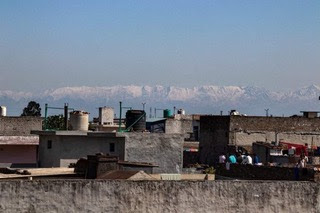What Are Your Names?
Some have asked me why I use a multiple sign-off for these messages. It’s because I’m using all my most common names, ones that reflect my key relationships with others. Most people call me Nancie. My children call me Mom. I’m three-year-old Cedar’s Mimi, and all my other grandchildren call me Grandma. But those aren’t all the names for me. My husband usually calls me by a pet name that I like, and both my cousin and my friend Debbie often call me Nanc. Spouse, parent, grandparent, cousin, and friend. Those are some of my names. There are others: Stepmother. Mother-in-law. Sister. Aunt. Godmother. Neighbor. Acquaintance. Student. Alumna. Fan. Colleague. Congregant. Mentor. Mentee. Facilitator. Therapist. Volunteer. Novice. Practitioner. Lawyer. Retiree. Elder. I could go on. Don’t we all have multiple roles in our lives? Multiple names? I’m drawing a distinction here between the internal (identity; who am I?) and the external (roles and relationships; who am ...


